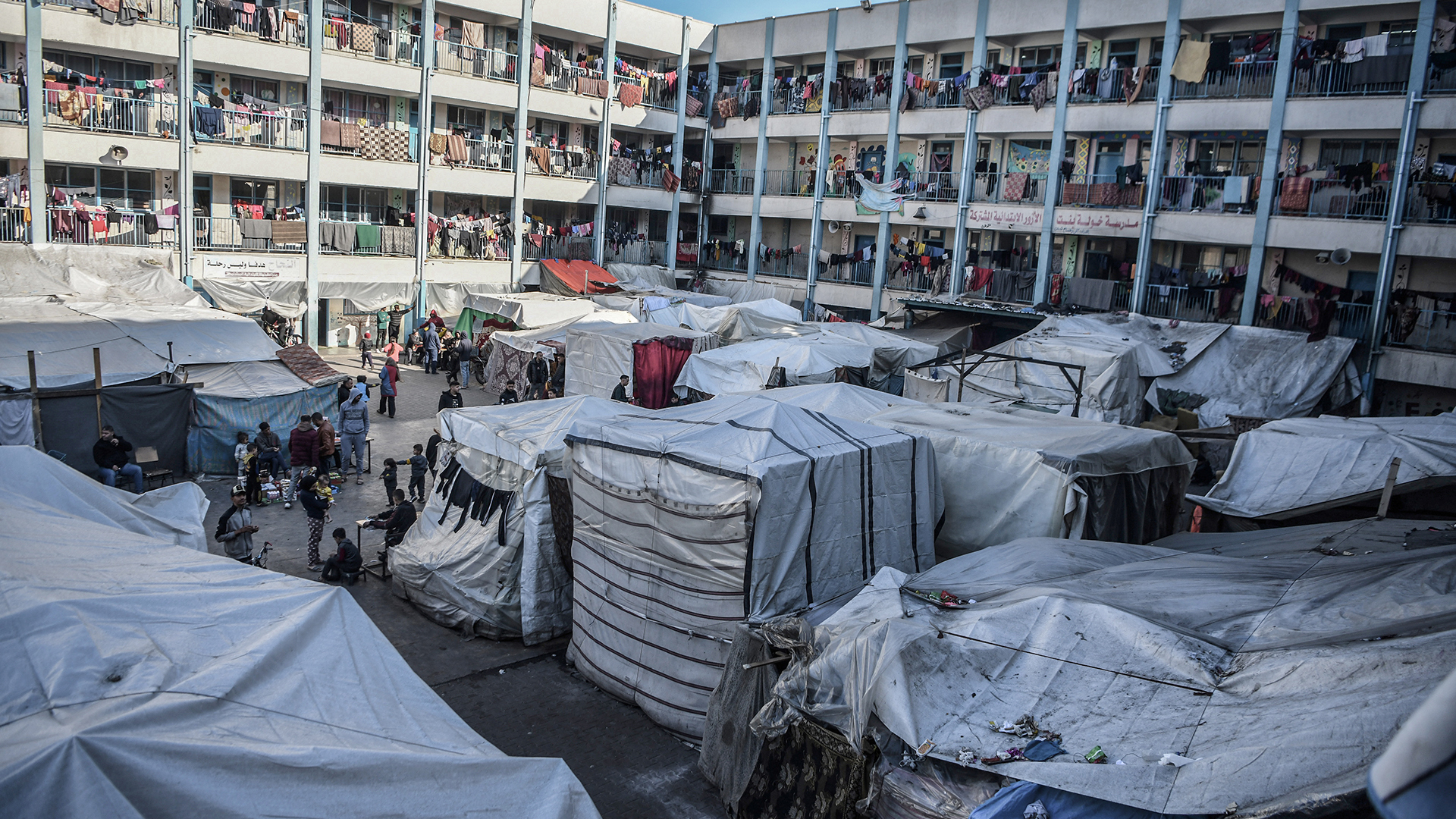play videoplay video
Video duration 03 minutes 19 seconds 03:19
International newspapers focused on the decision of some countries to suspend funding for the United Nations Relief and Works Agency for Palestine Refugees (UNRWA) and said that Israel pushed the United States and other countries to take this step despite major warnings about its repercussions.
The Washington Post said that Israeli intelligence prompted the United States to quickly cut off aid funding to the Gaza Strip, after some UNRWA employees were accused of participating in the attack of last October 7 (Al-Aqsa Flood).
The American newspaper quoted officials as saying that Washington had not independently verified Israel's allegations.
She also commented that the evidence provided by Tel Aviv convinced the United States and eight other donor countries to stop funding UNRWA, a decision that other aid groups warned put the safety of civilians in Gaza at risk.
In turn, the Financial Times newspaper said that withdrawing funding for UNRWA may lead to the cessation of its work within weeks, noting that the Palestinians will be the ones who will pay the price.
The British newspaper pointed out that the agency had survived several previous wars and hostile relations with various Israeli and American leaders, and said that it was engaged in an unprecedented mission to shelter and feed hundreds of thousands of Palestinians who were displaced by the war in Gaza.
An uprising is not impossible
In a related context, Palestinian Prime Minister Muhammad Shtayyeh told the New York Times that President Mahmoud Abbas and the Palestinian Authority are under tremendous pressure from the Palestinian people.
Shtayyeh said that the Palestinians want the Authority to “do something and wage war against Israel,” as he put it.
He added that a third intifada "is not impossible" and that the level of Palestinian anger coupled with settler violence "makes the situation flammable."
Shtayyeh also said that Israel has lost its balance, and that the Israelis are acting in a spirit of revenge and killing for the sake of killing.
For the Israeli "Haaretz", Zvi Barel wrote an article in which he said that the war in Gaza no longer aims to avenge the killing of 1,200 Israelis or even to recover the hostages (prisoners), noting that it "has become a holy war for the resettlement (settlement) of Gaza."
The writer added that those who watched the “Return to Gaza” conference held last Sunday “are well aware that the war aims to settle accounts for the crime of secession from Gaza in 2005.”
He concluded that this "means that war does not have a high price, as many people believe."
On the other hand, David Rosenberg said on the American “The Monitor” website that the war on Gaza led to a sharp rise in Israeli defense purchases.
The writer said that local defense needs in light of the ongoing war have forced Israeli defense contractors - at the present time - to delay the implementation of export contracts.
He added that the increasingly insecure regional situation "will leave the Israeli government no choice but to spend more on defense in the foreseeable future."
The writer concluded by saying that the Israeli government "is determined to reduce its dependence on the United States for obtaining conventional munitions."
Source: Al Jazeera

